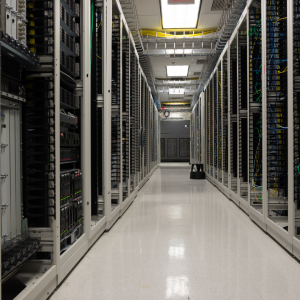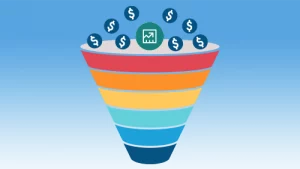Data Center Monitoring, What It Is And Why A Data Center Experienced In Need of One: A blog around data center monitoring and why it’s important.
You might think that data center monitoring is a luxury or a fad. But the fact is, it is an essential and valuable tool to optimize your data center performance. Data centers can save you money – up to 60% depending on where you’re located currently. But, if you don’t monitor them, you won’t be able to take advantage of these savings, or even enough space within the data center itself.
Your online business is depending on its data center and you’re trying to keep your data safe — but do you know what’s happening in it? If not, you might be putting your business at risk. Data centers have become key targets for hackers and natural disasters because they hold information that is so valuable. That’s why it’s extremely important to monitor your data center regularly with Data Center Monitoring — this gives you the peace of mind that everything is working properly and making sure the equipment the IT guys installed for you is doing its job.
What is Data Center Monitoring
Datacenter monitoring is the process of measuring, tracking and analyzing key performance indicators (KPIs) in a data center facility. Data center managers and IT managers use this information to improve the efficiency and availability of the center. Data center monitoring tools can include software, hardware or both.
Data centers are at the core of every company’s IT infrastructure. These facilities house networks, servers, storage and other essential IT equipment. Because they are so critical to the success of an organization, data centers must be monitored to ensure that they are running optimally – not only for the purposes of troubleshooting in order to prevent downtime, but also for improving the efficiency of operations.
There are several benefits to effective data center monitoring:
Increased efficiency: Data center monitoring allows operators to spot issues as they arise, which helps them avoid potential problems before they occur.
Improved availability: Operators can monitor system availability metrics in order to identify causes of downtime and make modifications that will increase uptime.
Better capacity planning: Historical data on resource usage allows operators to plan for capacity expansions.
Reduced energy costs: By tracking power consumption and efficiency metrics, operators can improve energy utilization and reduce energy costs.
Reduced operational expenses: Effective data center monitoring enables operators to identify opportunities for
Here are some of the reasons why data center monitoring is necessary for your business
Proactive Planning and Control
One of the greatest benefits of continuous data center monitoring is that it provides you with a comprehensive view of how your operations are running. This, in turn, allows you to not only anticipate problems such as capacity exhaustion but also take action in a timely manner to avoid them. Continuous monitoring can help you determine when it’s time to scale up and ensure your resources are used optimally in order to meet demands and improve efficiency. For example, if you notice an increase in network usage during certain times of day, you can schedule maintenance tasks around those periods to optimize operations and minimize disruptions.
Asset and Infrastructure Management.
When it comes time to replace or upgrade outdated IT infrastructure, continuous monitoring can help you estimate costs by providing insights into asset usage patterns. You’ll know exactly how many servers and storage units need replacing so that you can budget accordingly and make informed decisions about the investments required to keep your data center running smoothly into the future.
Visibility into Supply Chain Partnerships
If your organization works with third parties that provide services such as cloud storage, server hosting or data management, having visibility into their operations will allow you to better understand how your supply chain is performing
In short, data center monitoring is the practice of collecting metric data on servers, telecommunications equipment, and other systems in a data center. The metrics that are collected include temperatures and powers for host servers, storage arrays, networking equipment, and more. When the information is combined with information from power generation equipment like generators, UPS systems, and load banks, it can be used to measure the performance of a data center on an ongoing basis.






